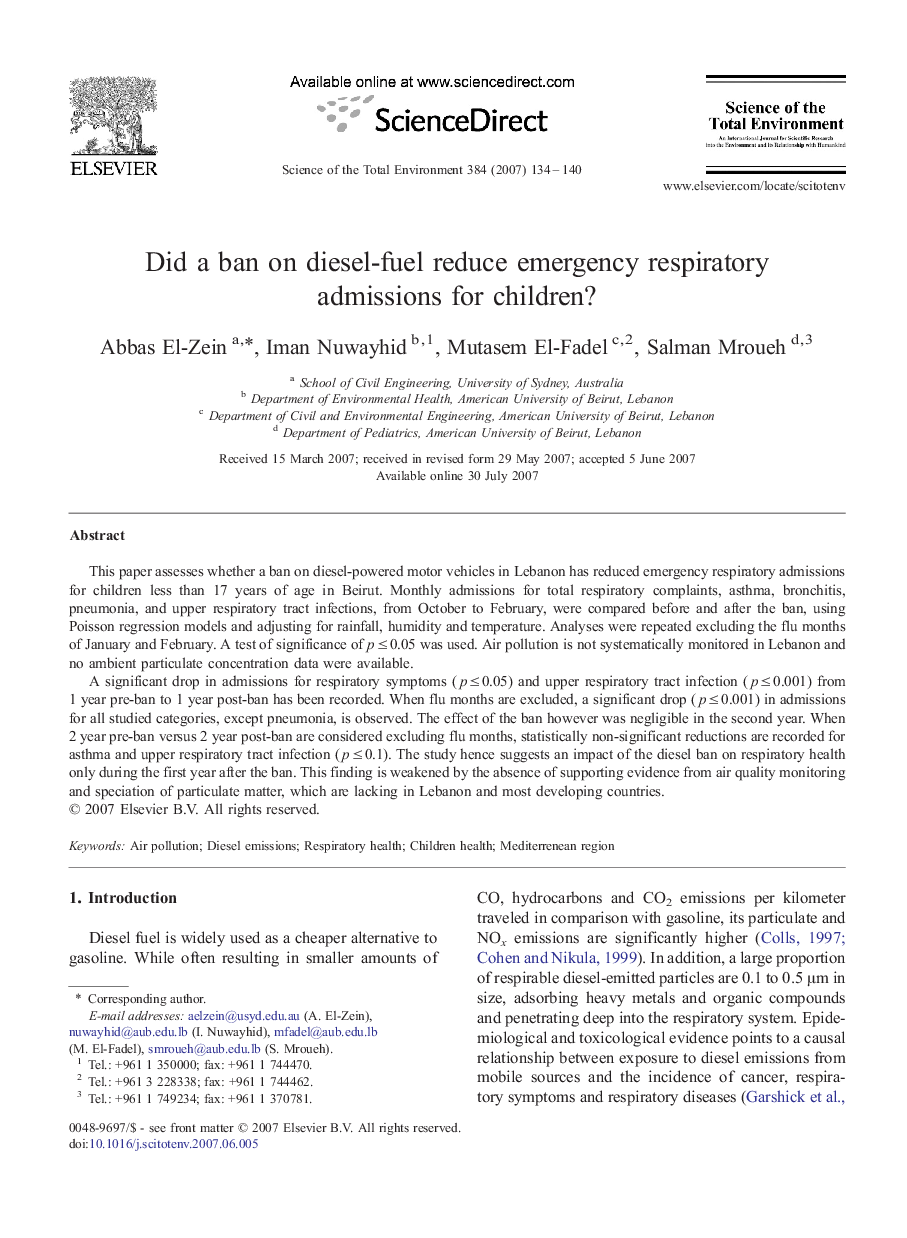| Article ID | Journal | Published Year | Pages | File Type |
|---|---|---|---|---|
| 4432861 | Science of The Total Environment | 2007 | 7 Pages |
This paper assesses whether a ban on diesel-powered motor vehicles in Lebanon has reduced emergency respiratory admissions for children less than 17 years of age in Beirut. Monthly admissions for total respiratory complaints, asthma, bronchitis, pneumonia, and upper respiratory tract infections, from October to February, were compared before and after the ban, using Poisson regression models and adjusting for rainfall, humidity and temperature. Analyses were repeated excluding the flu months of January and February. A test of significance of p ≤ 0.05 was used. Air pollution is not systematically monitored in Lebanon and no ambient particulate concentration data were available.A significant drop in admissions for respiratory symptoms (p ≤ 0.05) and upper respiratory tract infection (p ≤ 0.001) from 1 year pre-ban to 1 year post-ban has been recorded. When flu months are excluded, a significant drop (p ≤ 0.001) in admissions for all studied categories, except pneumonia, is observed. The effect of the ban however was negligible in the second year. When 2 year pre-ban versus 2 year post-ban are considered excluding flu months, statistically non-significant reductions are recorded for asthma and upper respiratory tract infection (p ≤ 0.1). The study hence suggests an impact of the diesel ban on respiratory health only during the first year after the ban. This finding is weakened by the absence of supporting evidence from air quality monitoring and speciation of particulate matter, which are lacking in Lebanon and most developing countries.
